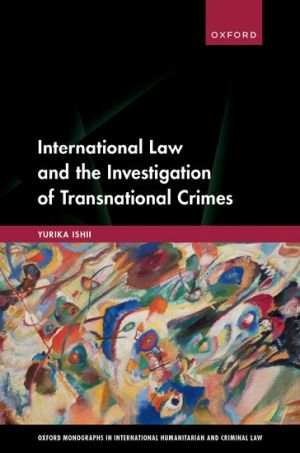
Obtaining information and evidence abroad remains the main challenge in suppressing transnational crimes. Law enforcement mechanisms, however, have evolved with the globalization of markets and the digitization of information.
Situated at the intersection of public international law, domestic law, and transnational crime, International Law and the Investigation of Transnational Crimes examines the methods that states use to investigate transnational crimes. This book argues that obtaining evidence abroad today relies primarily on the consent of other states and private entities, such as financial institutions and communication service providers. The first part explains the importance and the boundaries of conventional cross-border criminal investigation. The second part explores administrative cross-border investigations, encompassing various practice areas, including antitrust, securities, tax, information law, and financial law. It also examines non-criminal forms of cooperation in addressing foreign bribery and terrorism. The third part examines the direct cooperation with the investigating government and a foreign private entity, namely financial institutions and communication service providers.
Thought-provoking and pioneering, International Law and the Investigation of Transnational Crimes challenges the conventional understanding of international cooperation in criminal matters and provides new insights by exploring the interplay between international and domestic law.